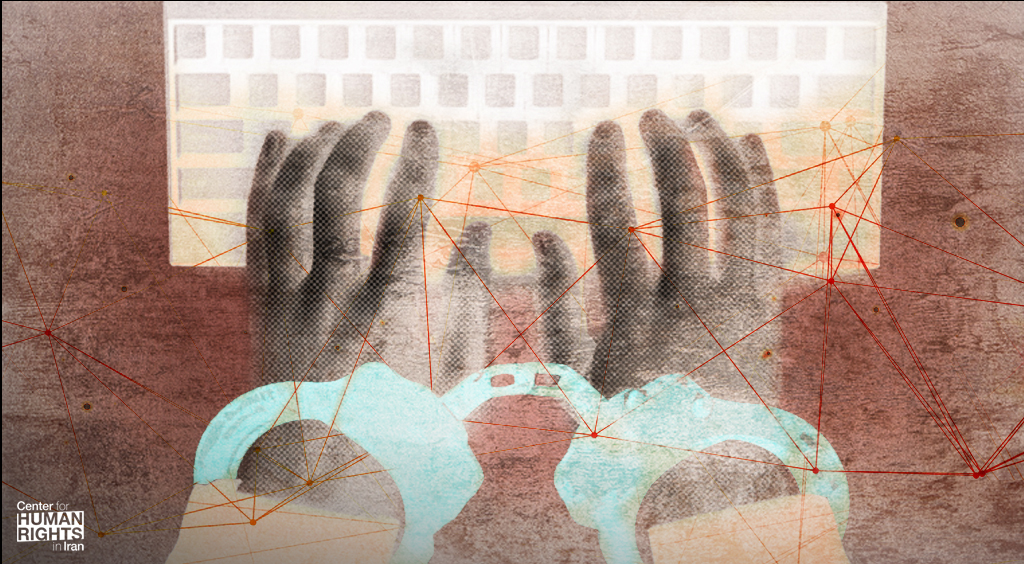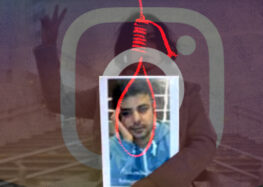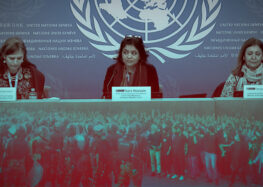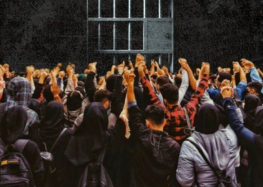Crackdown in Iran Intensifies as Iran’s Sham Presidential Election Nears
 Hundreds of Arrests, Detainees Violently Assaulted and Tortured
Hundreds of Arrests, Detainees Violently Assaulted and Tortured
Global Leaders Must Speak Out Against the Islamic Republic’s Violence
June 11, 2024 – Three weeks after the death of Iranian President Ebrahim Raisi, and as the Islamic Republic prepares for a state-orchestrated presidential “election” on June 28, civil society has come under intensified attack by the authorities, with violent and arbitrary arrests surging as the state seeks to crush all dissent, the Center for Human Rights in Iran (CHRI) has learned.
“While the Islamic Republic moves forward with a completely controlled and sham election, it is viciously lashing out at any independent societal voice in Iran,” said CHRI Executive Director Hadi Ghaemi.
“Its security agents arrest and brutalize the people of Iran and its judiciary dutifully locks them up, all to silence a society that increasingly says ‘No’ to the Islamic Republic’s repression,” he added.
“It is this violent state repression, committed flagrantly and with impunity, that the international community must respond to, publicly and forcefully, with costly diplomatic isolation and economic consequences,” Ghaemi urged.
According to statements made by local officials in the cities of Kerman, Tehran, and Foman, in the past two weeks at least 300 activists and users of social media networks have been summoned, arrested or charged for publicly criticizing former President Ebrahim Raisi after he died in a helicopter crash on May 19, 2024. Some have also been targeted by state security agencies for criticizing the upcoming presidential election, which has banned all viable opposition candidates from running.
CHRI cautions this number could be much higher, as it is based on statements made by officials who typically downplay arrests made during state crackdowns, and notes that these security measures are applied more widely and arbitrarily in small towns and against minorities.
CHRI calls on editors and journalists covering Iran’s upcoming election to note:
- These elections are neither free nor fair, as all viable opposition has been banned from running.
- Any Iranian citizen who criticizes or calls for a boycott of this deeply flawed election process will continue to face arbitrary arrest, torture, and imprisonment.
- Journalists are under severe pressure to toe the state line on the elections and will face expulsion, arrest, and prosecution for refusing to do so.
The international community, including the UN and global leaders should:
- Publicly condemn these severe violations of freedom of expression and directly warn the Iranian authorities that intensifying diplomatic and economic consequences will follow the continuation of these unlawful arrests and detainments.
- Be alert to the potential for increased state violence and repression as the election approaches, and forcefully condemn any violence against civil society.
According to CHRI’s sources in Iran, agents of the Ministry of Intelligence and of the Islamic Revolutionary Guard Corps’ Intelligence Organization have been systematically involved in threatening, summoning, and arresting citizens over the past several weeks for commenting on Raisi’s record of repression following his death.
Journalists, victims of state violence, and activists who had been previously arrested during Iran’s 2022/2023 “Women, Life, Freedom” uprising are also facing renewed repression and intimidation.
Meanwhile, the families of detainees, especially in smaller cities, are under intense pressure by the authorities to remain silent about their cases.
Activists and Journalists Violently Arrested, Tortured
Activists arrested during Iran’s “Woman, Life, Freedom” uprising have come under particular pressure. They include Farshad Dastmardi who was previously arrested and tortured during Iran’s 2022 “Woman, Life, Freedom” protests, and who was again tortured during his most recent arrest just a few weeks ago.
On May 20, 2024, a few hours after Raisi’s death, Ministry of Intelligence agents raided Dastmardi’s home, tortured him in detention for hours and then left him in the street outside a hospital, a source familiar with his case told CHRI.
“On the day they announced that Raisi died, three agents climbed over the wall of Farshad’s house and entered while he was asleep,” said the source, who requested anonymity for security reasons.
“Farshad woke up from the sound of his sister fighting the agents and ran towards them. The agents assaulted him with batons, fists and kicks. One of the agents sat on Farshad’s head, another on his legs, handcuffed him and put him in a car with repeated punches to his chest and took him away half dead,” said the source.
The source continued:
Inside the Ministry of Intelligence office, agents put Farshad on a chair and handcuffed him from behind. The interrogator pressured him to say that after Raisi’s death, he had been organizing opponents to start a protest and overthrow the government. The agents tortured and interrogated Farshad for four hours.
The agents beat Farshad several times until the next morning to force him to sign a confession that he mocked Raisi and used obscenities against him.
After 24 hours, the security forces left Farshad in a very bad condition in front of Khomeini Hospital. He was not even able to walk due to the severity of the beatings.
During the raid on Farshad’s home, the agents had seized all the phones of the family members. At four in the morning, family members and some friends of Farshad, went to the Ministry of Intelligence office and protested.
“When they learned Farshad’s condition had improved, Ministry of Intelligence agents contacted his father and told him to bring his son to their office,” the source told CHRI. “Farshad’s family haven’t taken him to the doctor, nor allowed him to leave the house, fearing he would be re-arrested.”
Journalists who’ve been targeted include Manijeh Moazen, who said on May 22, 2024, that a case had been opened against her in the Culture and Media Court after she was arrested in late May for posting a video showing people in Tehran celebrating with fireworks following Raisi’s death.
Other journalists who’ve been arrested since Raisi’s death include Mahta Sadri, a journalist in Gilan province, who was arrested on May 25 after she published a story about the former president’s death on Instagram. Sources said she was arrested by the IRGC and was released on June 9.
Others have received threatening phone calls, including Alia Matlabzadeh, a photojournalist in Tehran, and also in the capital, Hirsh Saeedian, an economic journalist, and Amir Hossein Mosalla, the editor-in-chief of the Ayat Mandegar Magazine.
In addition, on June 6, the Tehran prosecutor announced that charges had been filed against Hossein Pakdel, a former state TV host and actor, for “publishing material aimed at disrupting society’s psychological security and making insults and slander,” regarding Raisi, as well as Qasem Soleimani, the commander of Iran’s Quds force who was assassinated by a U.S. drone attack in Iraq in January 2020.
Hossein Shanbehzadeh, an author and editor, was taken into custody in the city of Ardabil, in Ardabil province in northern Iran, on June 4, after replying to a tweet from Supreme Leader Ali Khamenei with a single character: a period. A day after the arrest, the Ardabil prosecutor, without naming Shanbezadeh, announced the arrest of a “fugitive wanted by the Ministry of Intelligence for being an Israeli spy.” In a statement, Shanbehzadeh’s family responded, “The serious accusations raised against our loved one cannot be justified on the basis of his online activities with his real name.”
Meanwhile, there is no information on Zana Hassanzadeh, a dissident protest artist and rapper who was also arrested on May 22 in the Kurdish city of Bukan, in northwest Iran’s West Azerbaijan province, following a post on his Instagram page in which he commented on Raisi’s death.
Reza Babrnejad, the brother of Mehdi Babrnejad (one of the hundreds of protesters who were killed during the “Women, Life, Freedom” protests), has been arrested twice, first on June 1, and then again on June 6, just five days after he’d been released on bail, after he posted on the day of Raisi’s death an old video of his late brother dancing.






